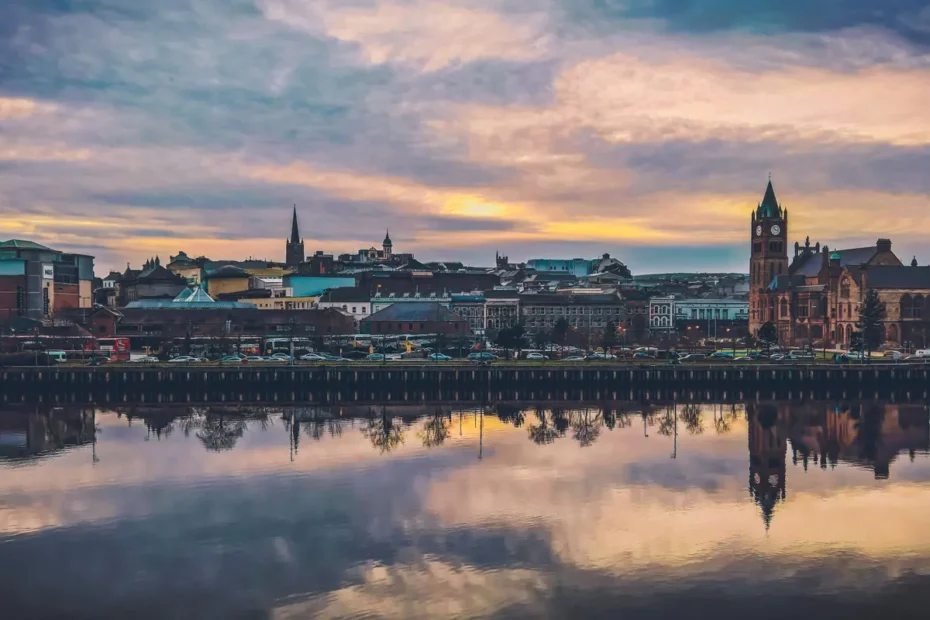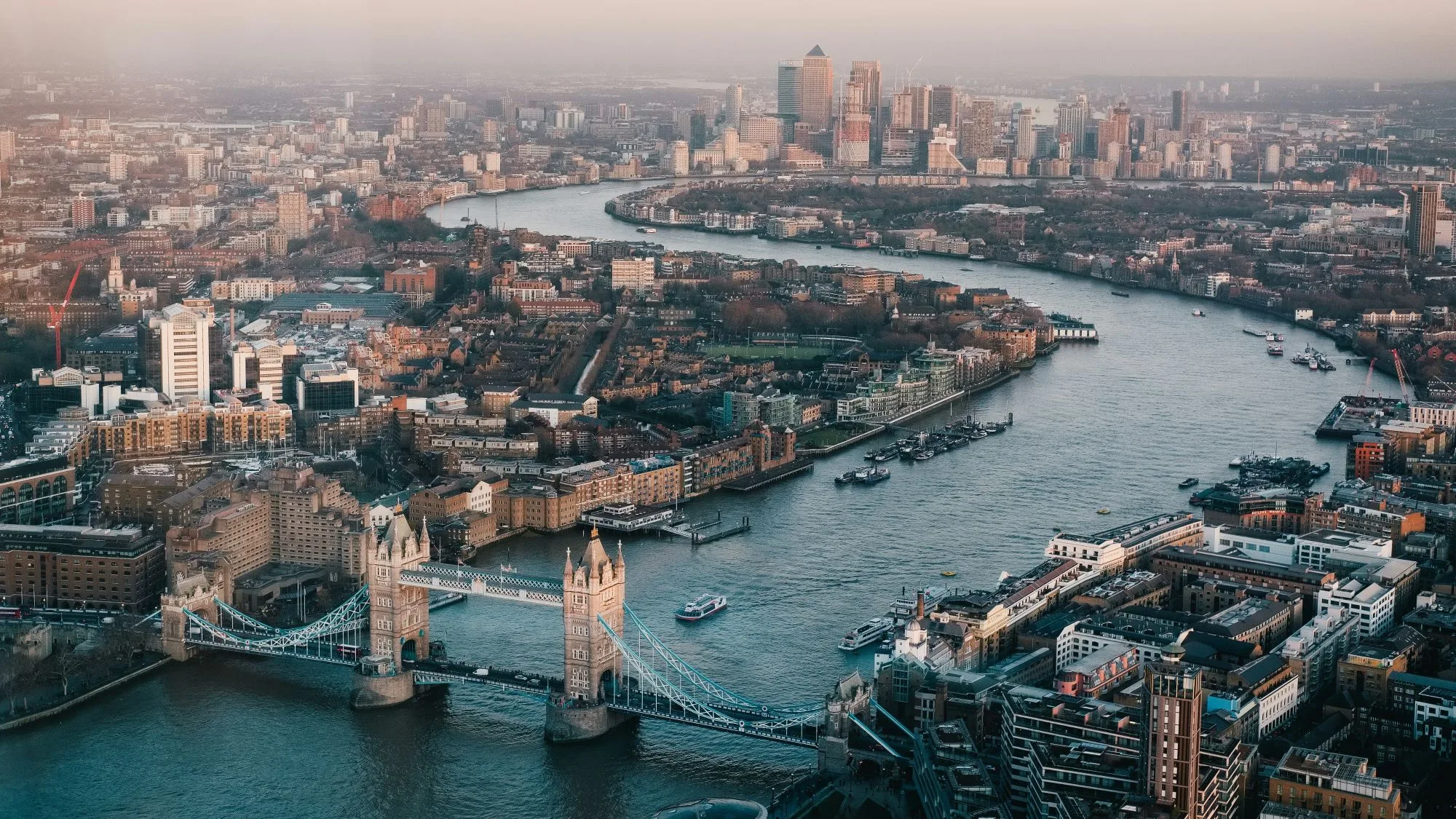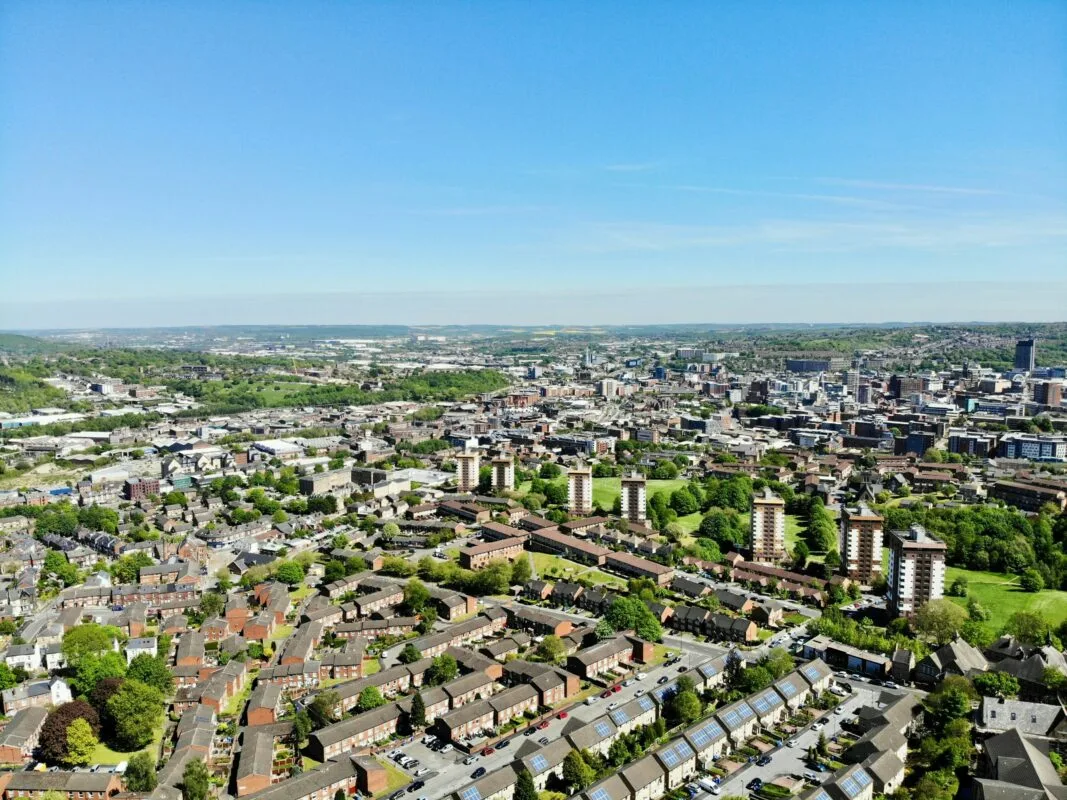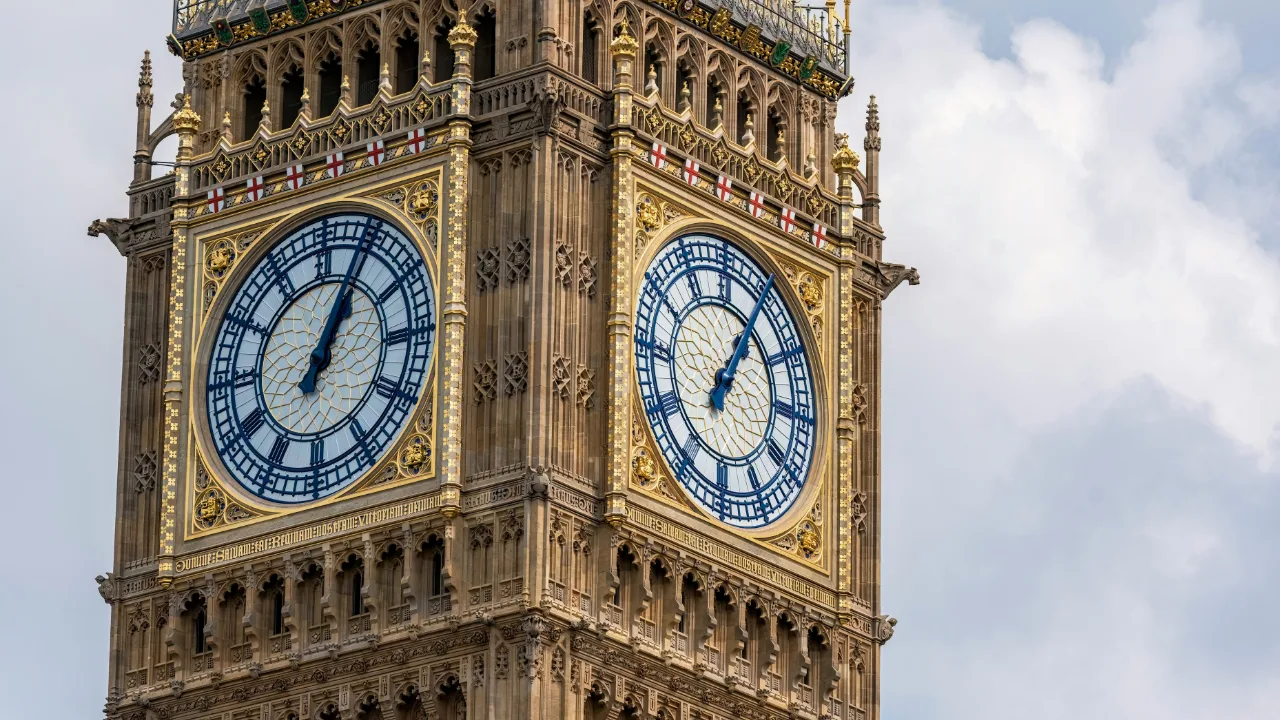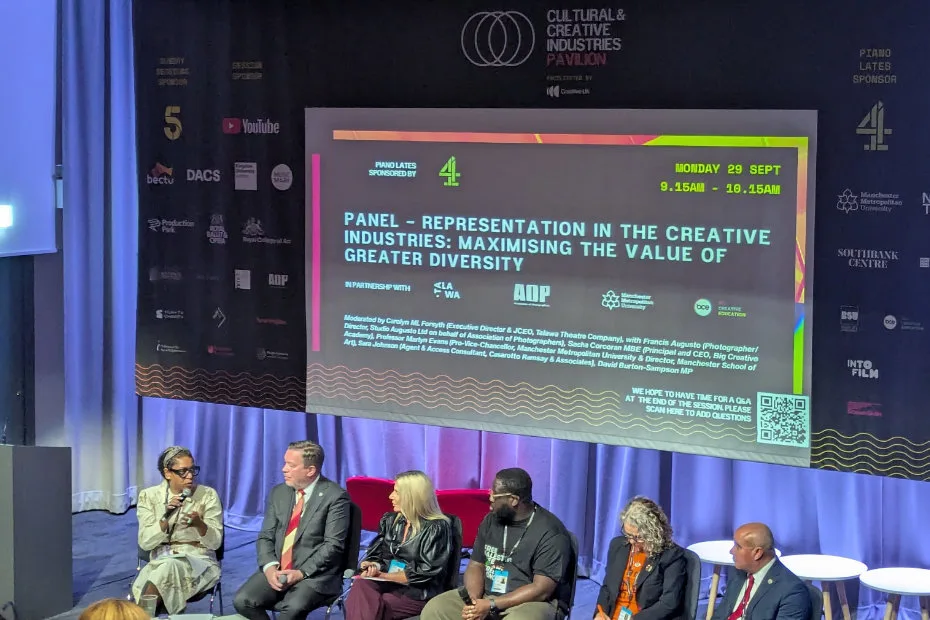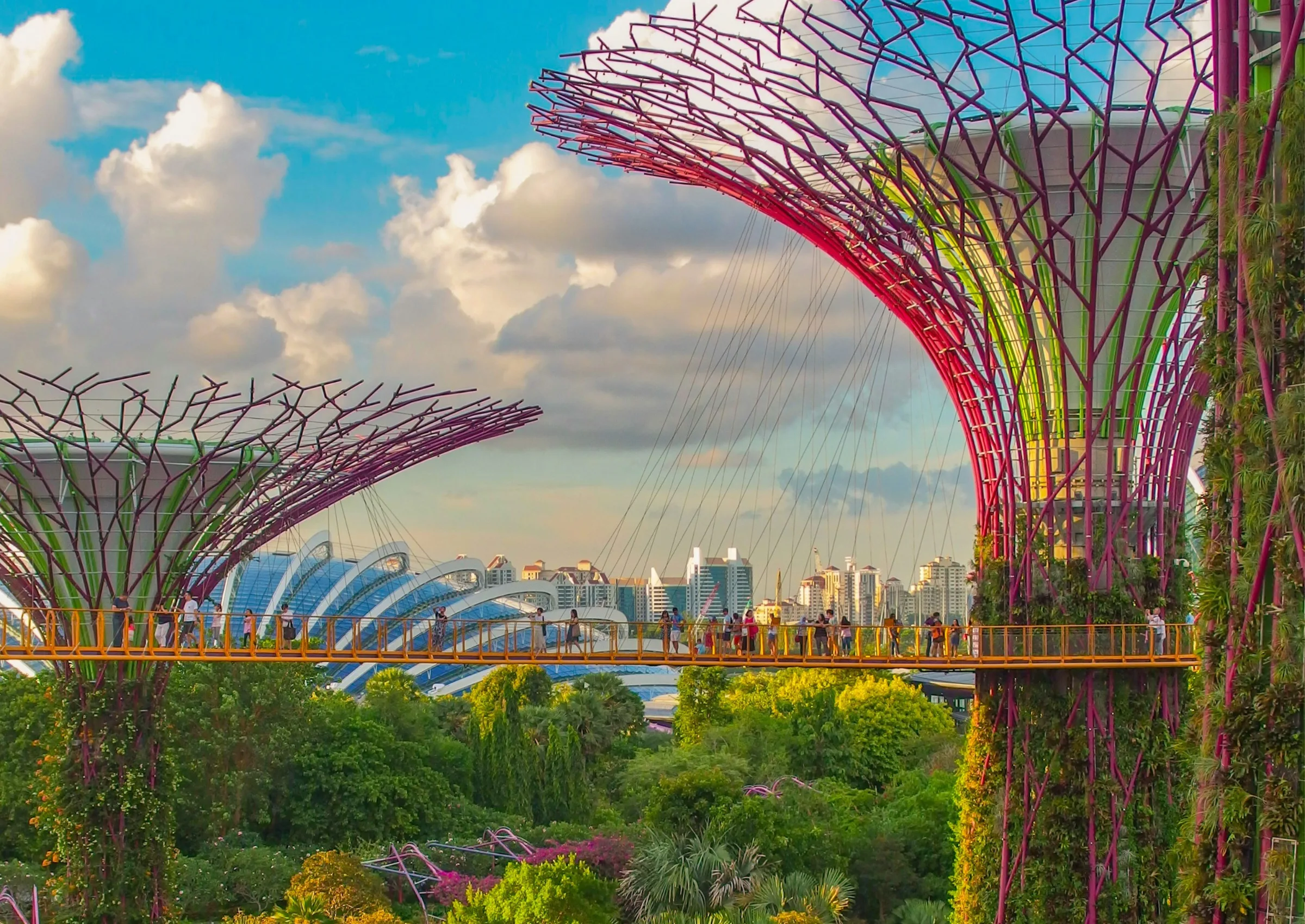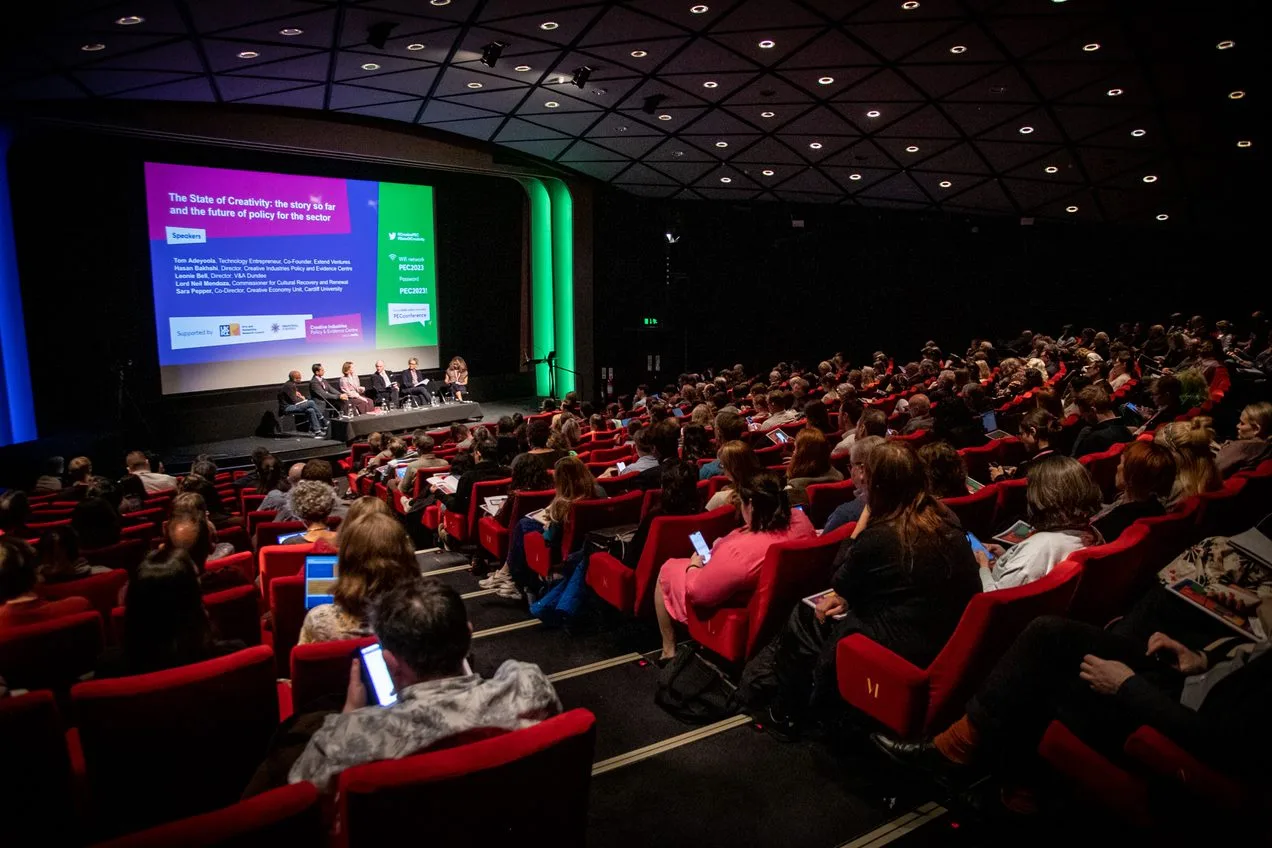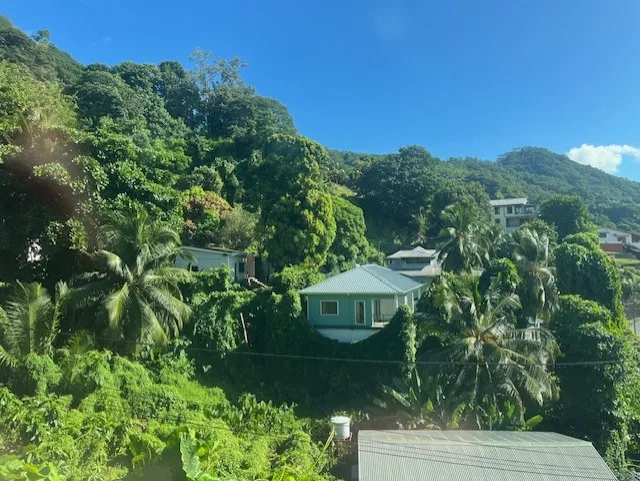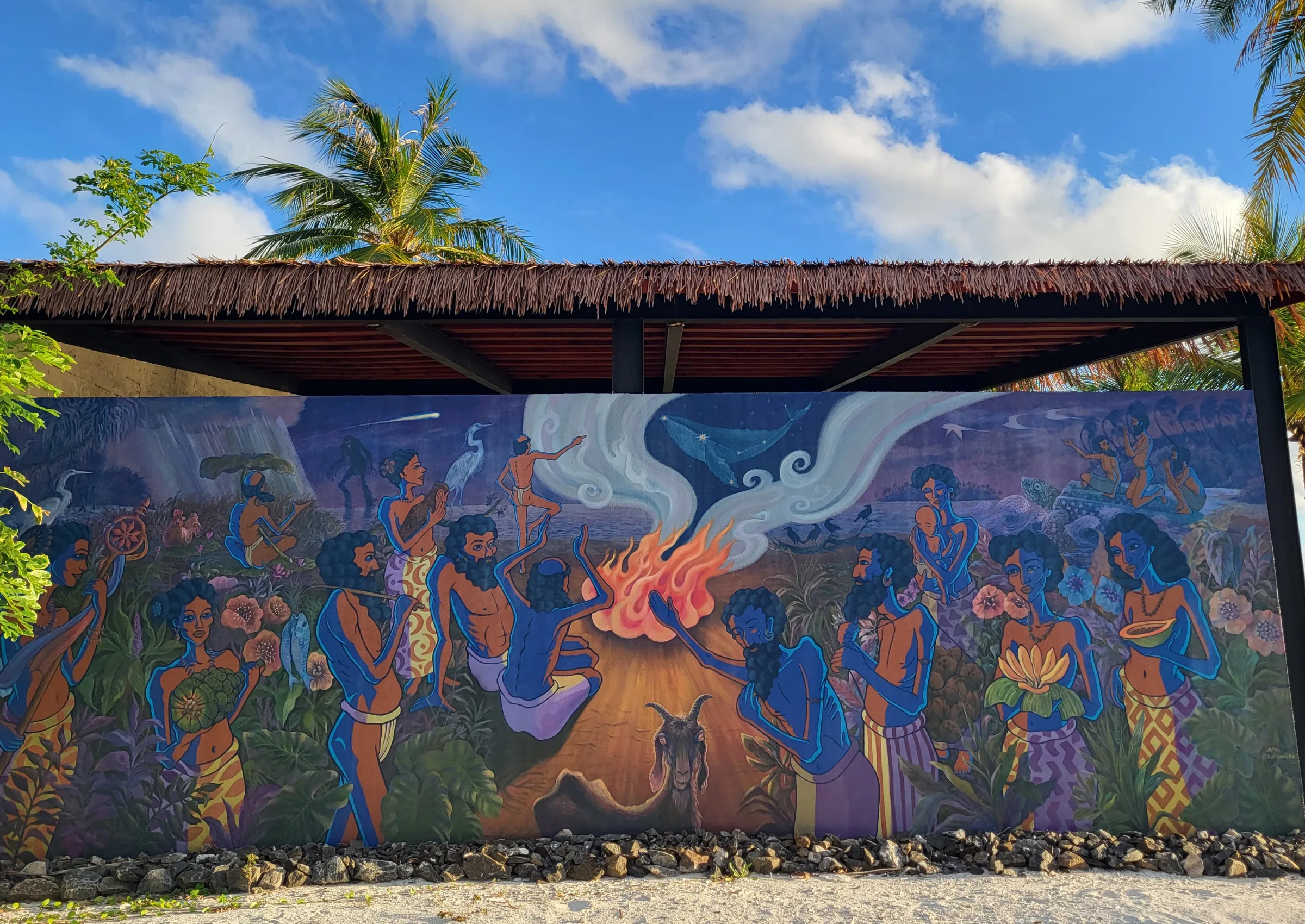The Department for Communities (DfC) recently awarded £4.7 million to Future Screens NI (FSNI) to create 72 three-year posts in arts organisations in Northern Ireland as part of the Art Work scheme. The creation of this programme suggests that policy makers increasingly recognise that an understanding of place, combined with a careful negotiation of the social, cultural and political landscape, can yield real change at the community level.
FSNI, as with the other AHRC Creative Industry clusters, was tasked at the outset of the Creative Industries Clusters Programme (launched in 2018) with developing R&D, advancing Gross Value Added (GVA) for the creative industries sector and creating jobs. For FSNI, addressing these criteria was part of a wider agenda to embed a creative industries discourse at the core of three other areas: community, education and policy.
The belief was that the sector was sustainable in the long term only if the creative industries were seen as being vital to the success of other industries, for example medicine, heavy engineering or security. One way to achieve this could be by making creative industry practices and narratives a central aspect in decision-making.
Most importantly, it was key to this strategy that any policy intervention was grounded in a profound understanding of place – in this case Northern Ireland. The centrality of the concept of ‘place’ has become a consistent theme across all the clusters and can be seen in the diverse range of projects and investment patterns in the annual cluster reports.
The genesis of the Art Work scheme is to be found in an analysis of job creation in the creative industries undertaken by Professor Alex McDowell and his team at the World Building Institute in Los Angeles. Alex and his team visited Northern Ireland on a number of occasions, meeting with representatives from industry and community to develop a project which would give disadvantaged youth (a major post-conflict issue for Northern Ireland) the chance to enter the creative industries without having to negotiate traditional educational routes which they believed had already failed them.
The outcome was a strategy called Story Engine which was aimed at allowing young people to tell their “future-self stories” with the possibility that these stories would then become content for companies participating in the project, companies in which the young people would find mentored employment. Unfortunately the pandemic made the application of this model impossible and discussions are ongoing to find a way to take the project online through a dedicated platform.
Crucially, however, during the development phase Alex and his team were able to present to key policy decision makers, most notably the Minister for Communities Deirdre Hargey, and to illustrate the ways in which such a scheme addressed issues of community support and levelling up.
While the pandemic halted the Story Engine project it offered other opportunities to rethink how clusters might support the sector. In the case of FSNI this manifested itself in the creation of stronger links with Arts Council NI through support grants funded by the Department for Communities and FSNI generated funding schemes such as Rewriting the Narrative. These schemes underlined for policy makers the key roles that creativity and the creative industries play in advancing economic, social and cultural capital post-pandemic. To assist in this process Minister Hargey established a Covid Recovery Task Force for the arts and creative industries, which the Director of FSNI was privileged to be a member of. While by definition much of the work was about immediate intervention there was also an understanding that longer term sustainability strategies were needed. This sustainability strategy ultimately emerged in the form of employability programmes where delivery bodies were partnered with sector agencies to design schemes appropriate to the sector.
FSNI was partnered with Arts Council NI and, working with key sector representatives, the Art Work programme was created. The Minister for Communities and a number of DfC officials worked over a hectic eight week period to ensure a total of £20 million entered the sector to create new posts and ultimately build capacity. In the long run, this programme will illustrate the key role that arts, heritage and creativity can play in ensuring the economic, social and cultural prosperity of the region.
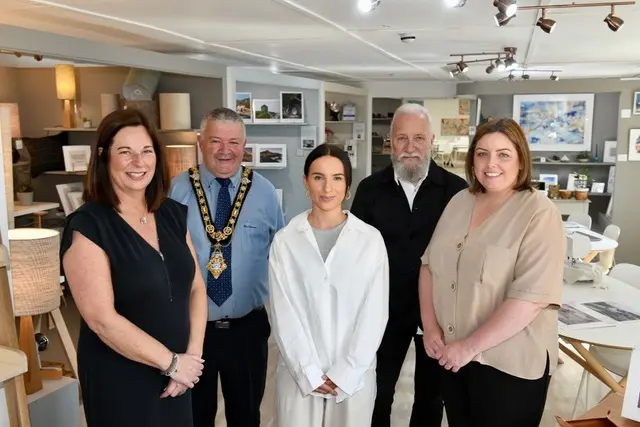
A previous paper published by PEC analysed the ways in which the pandemic had created opportunities for more direct engagement with key decision makers. The Art Work Scheme is a direct result of the types of engagement argued for in that paper. This form of cultural brokerage allows for direct and detailed negotiations with governmental departments. But it also demands of bodies such as FSNI an ability and willingness to take substantial risk, in partnership with government officials and ministers, to deliver original ways of approaching important economic issues, in this case employability. It also, crucially, demands that cluster bodies like FSNI align their strategic thrust with government priorities in what might be termed ‘tactical opportunism’ .
While the scheme is still in its early stages it is possible to identify developments which will provide important resources for future research. For example, we have found that it is the small creative organisations which are attracting significant interest in their job listings. This might suggest that potential employees are seeking out posts which offer the greatest opportunity for autonomy and creative involvement, which tend to be features of roles in smaller organisations.
Indeed, a number of employers have hired established artists and creatives who were working in other major cities (for example London and New York) but who have opted to return to Northern Ireland. These creative workers have cited the vibrancy of the Northern Ireland creative sector and region as key aspects behind their decision.
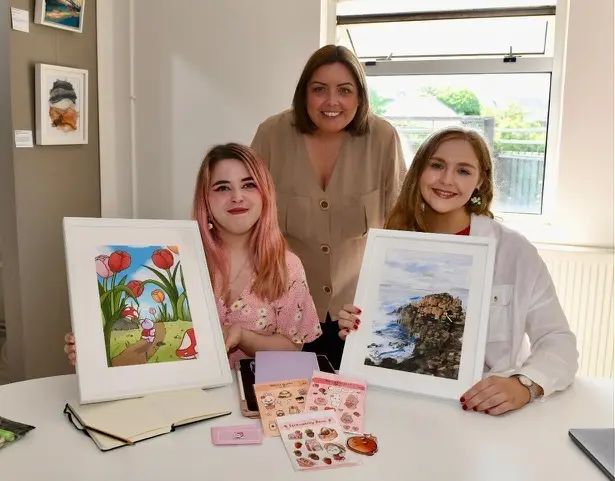
These are early observations and there is much formal research to be undertaken over the next three years to fully evaluate the impact of Art Work. But, to close, it is perhaps worth quoting the closing paragraph of the Cultural Brokerage and Creative Clusters article cited earlier:
“The recent sighting of Belfast as being amongst the top five cities in the UK for technology and creativity suggests that the region is ideally placed to contribute to policy development in the region over the coming period. FSNI will be working in partnership with others to advance such a collaborative model for policy development during the remainder of the life of the cluster.”
Thumbnail and hero image by K. Mitch Hodge on Unsplash
Related Blogs
From Wales to the World: Why International Cultural Policy Needs a Future Generations Lens
This guest blog is from Professor Sara Louise Pepper, a member of our Global Creative Economy Counci…
10 facts about Creative Industries growth potential
Discover ten key findings from the report 'High-Growth Potential Firms in the UK's Creative Industri…
Why London is investing in Creative Enterprise Zones
London Mayor Sir Sadiq Khan announces £2.2 million in new funding for Creative Enterprise Zones.
Research resources on Creative Clusters
We’ve collated recent Creative PEC reports to help with the preparation of your Creative Cluster bid…
What UK Job Postings Reveal About the Changing Demand for Creativity Skills in the Age of Generative AI
The emergence of AI promises faster economic growth, but also raises concerns about labour market di…
Creative PEC’s digest of the 2025 Autumn Budget
Creative PEC's Policy Unit digests the Government’s 2025 Budget and its impact on the UK’s creative …
Why do freelancers fall through the gaps?
Why are freelancers in the Performing Arts consistently overlooked, unseen, and unheard?
Insights from the Labour Party Conference 2025
Creative PEC Policy Adviser Emily Hopkins attended the Labour Party Conference in September 2025.
Association of South-East Asian Nations’ long-term view of the creative economy
John Newbigin examines the ASEAN approach to sustainability and the creative economy.
Culture, community resilience and climate change: becoming custodians of our planet
Reflecting on the relationship between climate change, cultural expressions and island states.
Cultural Industries at the Crossroads of Tourism and Development in the Maldives
Eduardo Saravia explores the significant opportunities – and risks – of relying on tourism.
